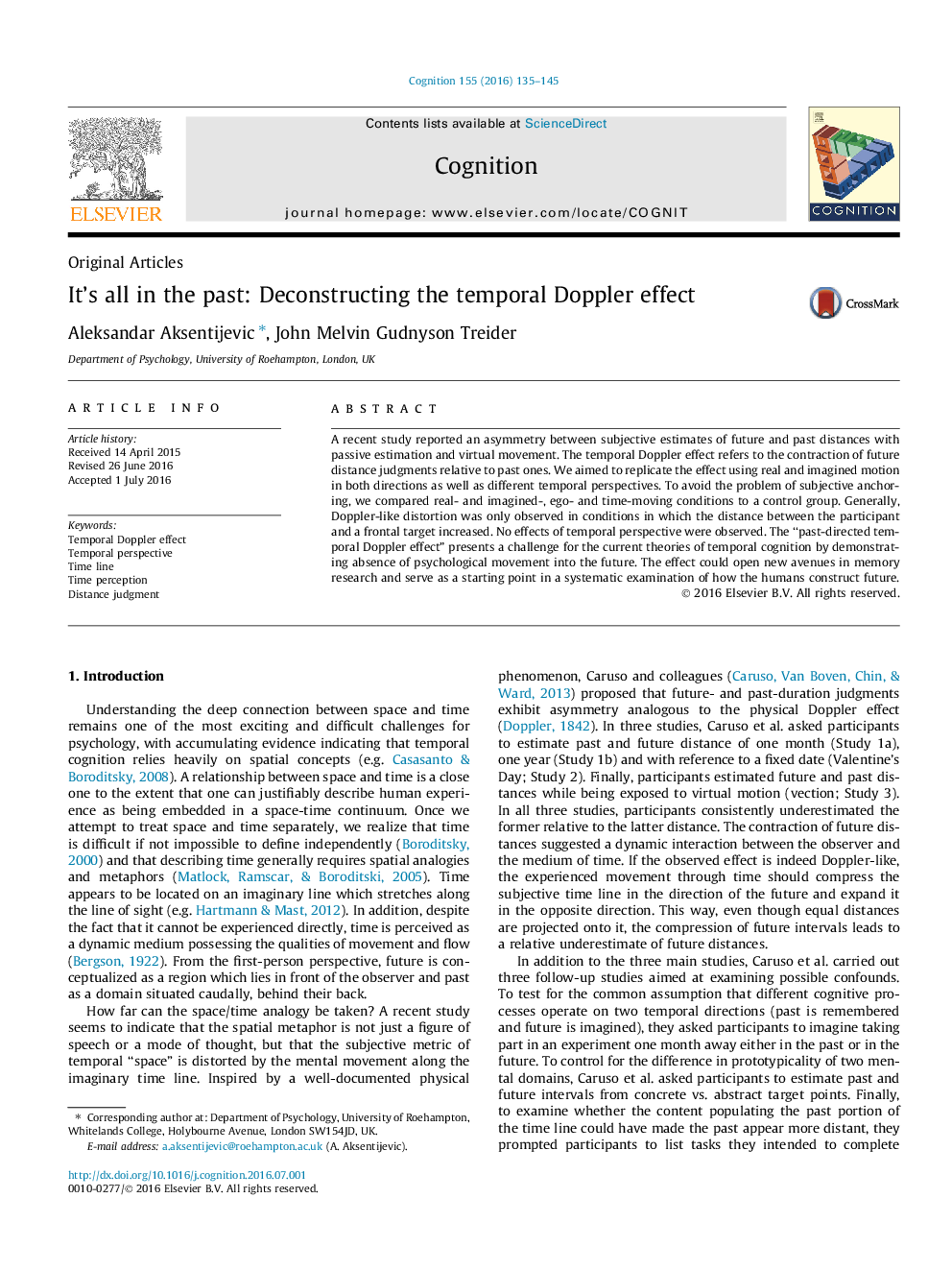| Article ID | Journal | Published Year | Pages | File Type |
|---|---|---|---|---|
| 7285822 | Cognition | 2016 | 11 Pages |
Abstract
A recent study reported an asymmetry between subjective estimates of future and past distances with passive estimation and virtual movement. The temporal Doppler effect refers to the contraction of future distance judgments relative to past ones. We aimed to replicate the effect using real and imagined motion in both directions as well as different temporal perspectives. To avoid the problem of subjective anchoring, we compared real- and imagined-, ego- and time-moving conditions to a control group. Generally, Doppler-like distortion was only observed in conditions in which the distance between the participant and a frontal target increased. No effects of temporal perspective were observed. The “past-directed temporal Doppler effect” presents a challenge for the current theories of temporal cognition by demonstrating absence of psychological movement into the future. The effect could open new avenues in memory research and serve as a starting point in a systematic examination of how the humans construct future.
Related Topics
Life Sciences
Neuroscience
Cognitive Neuroscience
Authors
Aleksandar Aksentijevic, John Melvin Gudnyson Treider,
